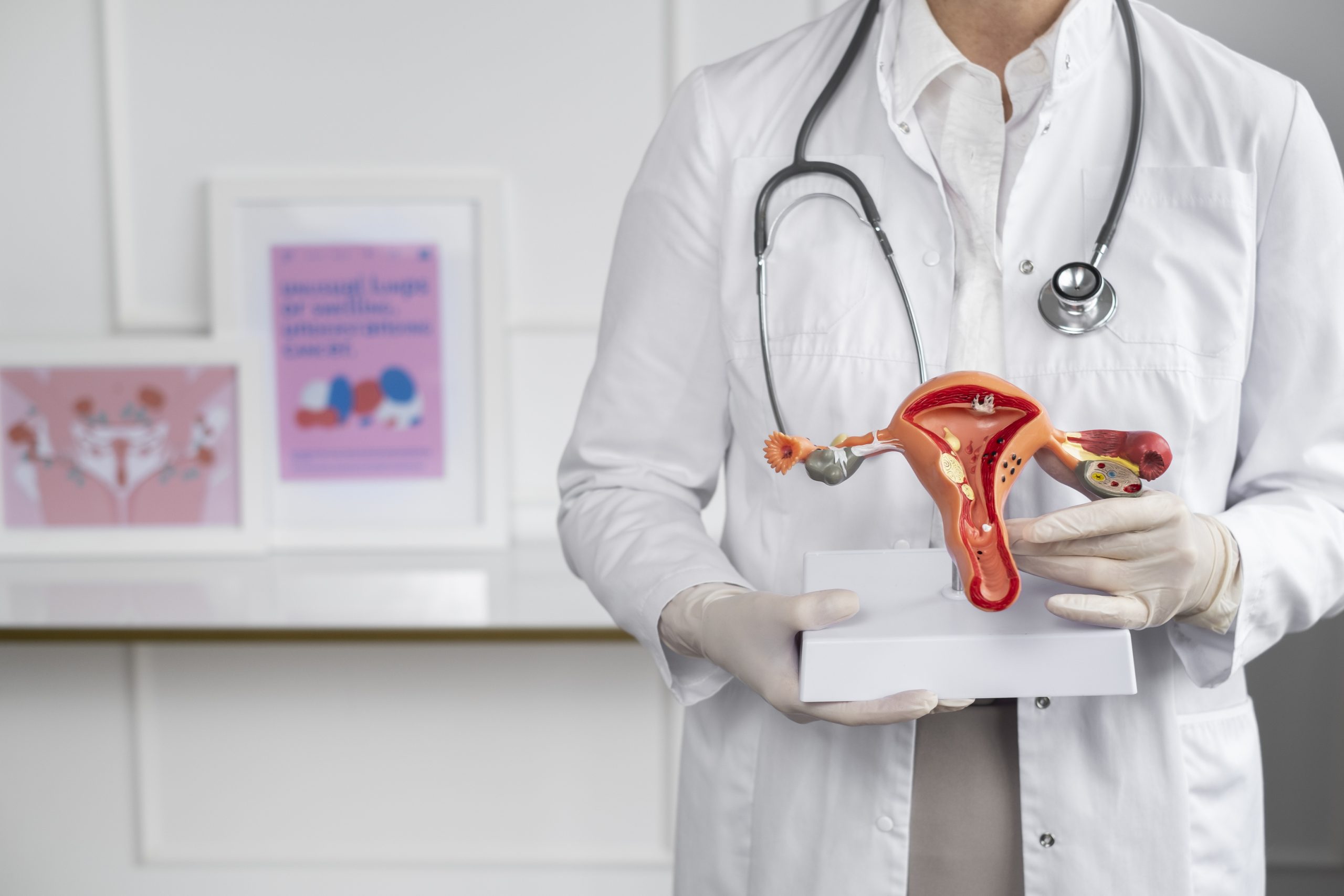

The UNC Gillings School of Global Public Health and UNC Lineberger Comprehensive Cancer Center found that mailing HPV self-collection tests and helping under-screened, low-income women schedule in-clinic screening appointments increased cervical cancer screening by nearly two-fold. Scheduling assistance mostly involved booking a clinic appointment for in-person screening, regardless of whether an at-home test was offered or returned or the HPV test was positive or negative.
Lancet Public Health published the randomized study results May 11.
“My hope going into this study was that mailing kits for home-based collection might increase cervical cancer screening, but we were thrilled to find a nearly two-fold increase in screening uptake,” said Jennifer S. Smith, PhD, MPH, professor of epidemiology at UNC Lineberger and the Gillings School and corresponding author of this study. “Many hadn’t engaged in the screening system for a while and getting the kit to their homes helped break down a fundamental barrier.”
According to the National Cancer Institute, 14,000 American women will be diagnosed with cervical cancer this year, and over 4,300 will die. Black and Hispanic women have the highest incidence and fatality rates for cervical cancer in North Carolina in the U.S. Underscreened women get most cervical malignancies. The CDC estimates 22% of eligible U.S. adults are overdue for screening.
665 uninsured or Medicaid/Medicare-enrolled women aged 25–64 from 22 North Carolina counties participated in the My Body, My Test-3 project. Most urban women had poor wages. None had a pap or high-risk HPV test in four or six years, making them overdue for screening.
Two-thirds of women received mailed HPV self-collection kits and help scheduling a clinic screening session. Another third received screening scheduling assistance alone. Attending an in-clinic screening session or testing HPV-negative with self-collected samples within six months of trial enrollment was the primary outcome.
Mail-delivered HPV kits increased screening rates to 72% from 37%. Self-collection outreach did not affect screening uptake by age, race/ethnicity, time since last screening, Medicaid or Medicare coverage, or education.
“Home screening for cervical cancer puts women in control. Most can avoid having to go to a doctor’s appointment. These at-home kits can better reach people without access to screening, who are embarrassed by a cervical exam or whose religious beliefs include modesty,” said study co-author Noel T. Brewer, PhD, Gillings Distinguished Professor in Public Health and UNC Lineberger member.
“We believe our results are applicable to low-income, under-screened women across the U.S.,” Smith said. “We’re now working with clinical partners to identify women who might be overdue for screening through electronic medical records. We hope to provide the option of either mailing them a self-collection kit to use at home to mail back to us or handing a kit directly to them when they come into clinics for other services with the vision to eventually make self-collection a regular clinical provision.”
The UNC researchers believe their findings and earlier studies will convince the FDA to approve HPV self-collection as a primary cervical cancer screening test in the U.S.
more recommended stories
 Red Blood Cells Improve Glucose Tolerance Under Hypoxia
Red Blood Cells Improve Glucose Tolerance Under HypoxiaKey Takeaways for Clinicians Chronic hypoxia.
 Nanoplastics in Brain Tissue and Neurological Risk
Nanoplastics in Brain Tissue and Neurological RiskKey Takeaways for HCPs Nanoplastics are.
 AI Predicts Chronic GVHD Risk After Stem Cell Transplant
AI Predicts Chronic GVHD Risk After Stem Cell TransplantKey Takeaways A new AI-driven tool,.
 Red Meat Consumption Linked to Higher Diabetes Odds
Red Meat Consumption Linked to Higher Diabetes OddsKey Takeaways Higher intake of total,.
 Pediatric Crohn’s Disease Microbial Signature Identified
Pediatric Crohn’s Disease Microbial Signature IdentifiedKey Points at a Glance NYU.
 Nanovaccine Design Boosts Immune Attack on HPV Tumors
Nanovaccine Design Boosts Immune Attack on HPV TumorsKey Highlights Reconfiguring peptide orientation significantly.
 High-Fat Diets Cause Damage to Metabolic Health
High-Fat Diets Cause Damage to Metabolic HealthKey Points Takeaways High-fat and ketogenic.
 Acute Ischemic Stroke: New Evidence for Neuroprotection
Acute Ischemic Stroke: New Evidence for NeuroprotectionKey Highlights A Phase III clinical.
 Statins Rarely Cause Side Effects, Large Trials Show
Statins Rarely Cause Side Effects, Large Trials ShowKey Points at a Glance Large.
 Anxiety Reduction and Emotional Support on Social Media
Anxiety Reduction and Emotional Support on Social MediaKey Summary Anxiety commonly begins in.

Leave a Comment